The Aquinas Academy
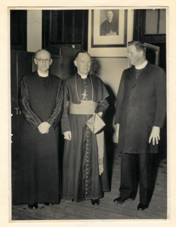
The Aquinas Academy was set up under the auspices of the Australian Province of the Marist Fathers by Fr Austin Woodbury SM in March 1945. The Academy began as a centre for the study of Philosophy and Theology in the Thomistic tradition. For some twenty-nine years it continued in this capacity under Fr Woodbury’s guidance, in premises at the back of St Patrick’s Church, Gloucester Street, in The Rocks (Sydney, NSW). For a short while the Academy offered a License in Philosophy under accreditation from the University of St Thomas in Rome. Since its inception, a number of qualified priests, religious and laity have been part of the lecturing staff. The Academy was one of the pioneers of Catholic adult education in Australia.
Since 1975, the Academy has increasingly focused on general adult education in the faith. Perhaps the most popular of the programs mounted was the Christian Growth Program, offering basic education in theology, morality, psychology and spirituality. During this time the Academy also developed a State-accredited program for religious education teachers, offering a Certificate in Religious Studies. In these years, also, a wide array of seminars, special lecture series, summer schools and workshops were offered – with presenters from Australia and overseas. All these programs were designed to contribute in some way to adult education in the faith. One of the features of the Academy during these latter years has been its mobility – programs have been offered at various centres in and around Sydney and along the eastern seaboard.
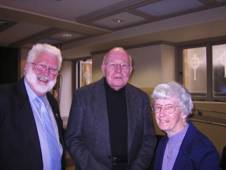
At the end of 2021, Aquinas Academy moved from lectures on site to resources online. This web site
contains many resources from past and present presentations. It is our intention to keep updating
the site.
Everything on this site for free use. We do request that users acknowledge the source.
Michael Whelan SM PhD
July 2022
Diamond Jubilee Year – 2005
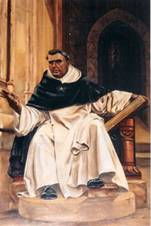
In a letter addressed to Fr Austin Woodbury SM dated January 5, 1945, the Archbishop of Sydney, Norman Thomas Gilroy, wrote: “I was extremely pleased to learn of your letter of the 29th ultimo that you propose to undertake the institution of classes of Catholic Philosophy in Sydney. The proposal has my cordial approval and shall receive whatever support I am able to give.”
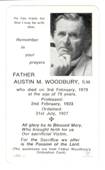
The decision to establish the Aquinas Academy was formally taken by the Marist Fathers on February 7, 1945. Fr Woodbury – affectionately known as “The Doc” – was appointed to take charge of the project. The annual Communion breakfast of the Catholic Journalists’ Guild was chosen as the forum to make the public announcement a few days later. The Catholic Weekly reported: “A beginning will be made with a course of Thomistic Philosophy, but it is hoped that in the not very distant future, companion courses of Sociology and of Theology will be added.” The rest is history.
The first lecture was given by Fr Woodbury at the Aquinas Academy on the evening of March 7, 1945. The War was still on. Supplies of paper and ink were scarce. On that first evening – and indeed on some subsequent occasions – electricity was also in short supply and lectures had to be given by the light of kerosene lanterns.
One hundred and five students enrolled in that first year and between two and three hundred students in each of the following twenty years. By 1960 seven other lecturers had joined Fr Woodbury. By that time, a schedule of classes, running mostly in the evenings, five days each week during the term, might include Moral Philosophy, Metaphysics, Catholic Doctrine, Latin, History of Philosophy, Political Economy and Psychology.
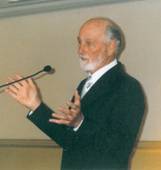
Fr Woodbury taught at the Academy for twenty nine years, retiring in 1974. During those years much changed in society and the Catholic Church. Perhaps no event draws the contrast between that time and ours better than the famous public debate between Fr Paddy Ryan MSC and Edgar Ross, a member of the Central Committee of the Australian Communist Party. The topic was, “That Communism is in the best interests of the Australian people.” The debate was held at the Rushcutter’s Bay Stadium on September 23 1948 and thirty thousand people turned up.
Apart from the political, cultural and social currents effecting changes in the wider community of Australia during that post-War period, the Second Vatican Council (1962-1965) made a huge difference in the lives of Catholics. Catholics began seeking pastoral guidance for the new situation, they wanted to hear about morality, practical psychology and spirituality. Two developments at the Academy in the late seventies epitomized the changing times. The first was an affiliation with the University of St Thomas in Rome (the Angelicum). The second was the commencement of the Christian Growth Program by Frs John Thornhill SM and Allan Connors SM.